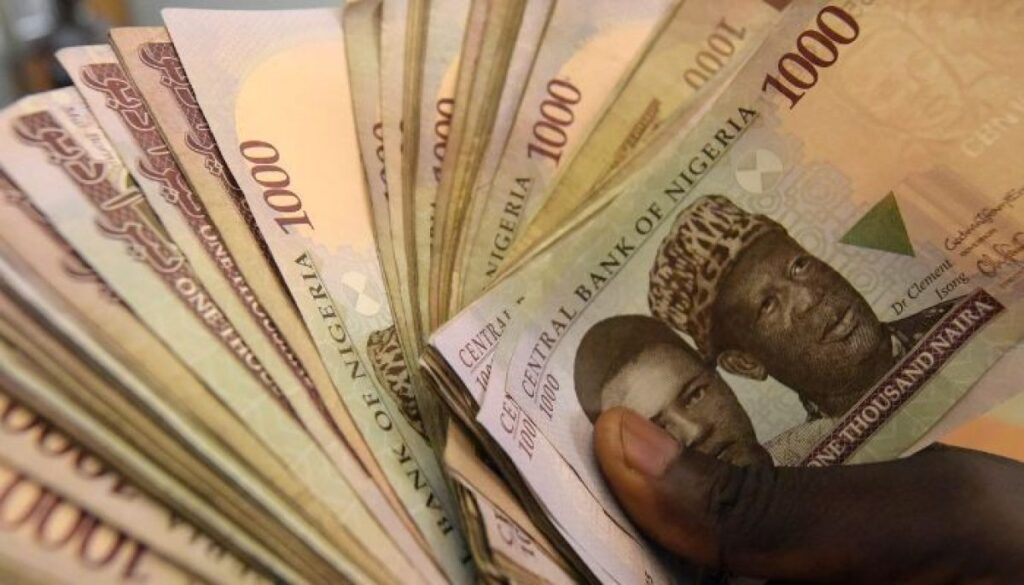The resurgence of artificial cash scarcity in Nigeria is exacerbating the severe economic difficulties already faced by citizens, particularly with the rising cost of goods and services. The recent cash rationing by banks has disrupted economic activities and made life increasingly difficult for many Nigerians. It has reached a point where the House of Representatives has urged the Central Bank of Nigeria (CBN) to urgently address the situation, which is causing significant hardship across the country.
Small-scale businesses, which often lack Point of Sale (POS) systems or online banking facilities, are among the hardest hit by this crisis. These businesses, the backbone of Nigeria’s informal economy, rely heavily on cash transactions. With limited access to cash, many are unable to operate at full capacity, further driving the nation’s economic struggles.
Data from the CBN’s money and credit statistics reveal that a substantial portion of currency in circulation remains outside the formal banking system. As of October 2024, over 90% of the currency in circulation was held outside the banking sector. In fact, currency outside the banks reached N4.29 trillion, accounting for 94.3% of the total currency in circulation. This represents a sharp increase from the previous year, highlighting the growing reliance on physical cash, despite efforts to push for a cashless economy.
In the face of this overwhelming trend, many Nigerians continue to prefer cash transactions, which not only hinders the country’s push for modernised financial systems but also exposes the limitations of electronic payment solutions in a country still grappling with significant infrastructural challenges.
In fact, as of the first quarter of 2024, electronic payment transactions surged to N234 trillion, up from N123.8 trillion in the same period of 2023, yet this increase does not fully compensate for the challenges posed by cash scarcity.
Despite the rise of electronic payments globally, many Nigerians still struggle to embrace digital alternatives. Poor network infrastructure, frequent payment delays, and a lack of trust in electronic systems remain significant barriers to the adoption of cashless solutions. Moreover, financial exclusion continues to plague rural populations, who often lack access to smartphones or reliable internet services. This makes a complete transition to cashless transactions not just difficult, but in many areas, nearly impossible.
The situation has worsened with the CBN’s recent efforts to combat the illegal flow of mint naira notes to currency hawkers and unscrupulous agents. A circular issued by the CBN on December 13, 2024, announced a N150 million fine per branch for Deposit Money Banks (DMBs) found guilty of facilitating the illicit trade of mint naira notes. The CBN has also threatened stricter sanctions for repeat offenders, in an effort to curb the commodification of the naira and ensure more efficient cash distribution.
However, the move to penalise banks has not addressed the root cause of the cash shortage: the CBN’s inability to meet the cash demands of commercial banks. The inadequate supply of naira notes into circulation is causing frustration across the country, particularly in northern states, where agriculture-based economies depend on cash to purchase grains during the harvest season. Long queues at ATMs and limited banking hours have become the norm, further aggravating the situation as the Yuletide season approaches.
The ongoing cash shortage is more than just an economic issue—it reflects a growing lack of confidence in the financial system. Many Nigerians are frustrated with the litany of charges and poor customer service they face when dealing with banks. The high fees associated with saving money, combined with poor dispute resolution over incomplete transactions and network failures, have left many feeling disillusioned with the banking system. The sight of fresh naira notes being used at weekend parties, while ATMs remain empty, points to a deeper issue of cash racketeering by bankers, which has continued unabated despite the CBN’s efforts.
To resolve this crisis and ensure smoother economic operations, the CBN must take swift and decisive action. This includes injecting more cash into circulation and temporarily easing withdrawal limits to alleviate scarcity. Additionally, the CBN should deploy more mobile money agents to rural areas and make it a priority to increase the number of ATMs, especially in underserved regions. A multi-stakeholder approach, involving the CBN, commercial banks, fintech companies, and the government, is crucial to solving this issue and restoring public trust in the financial system.
The current situation calls for urgent action to ensure that Nigerians can access their hard-earned money, especially as the festive season peaks. The authorities must act swiftly to bring stability back to the banking system and ensure that the country’s economic activity is not further hindered by the artificial cash scarcity that has gripped the nation. Only through concerted efforts, clear policy implementation, and stronger infrastructure can the gap between digital and traditional cash systems be bridged, ultimately fostering a more inclusive economy that benefits all Nigerians.

